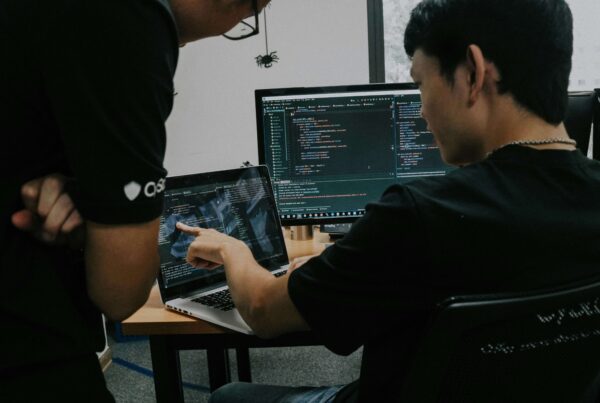Now we are in a technical renaissance, we had left VR technology behind in the 90s- considered a novelty but nothing more. It was expensive, the visuals clunky and slow, and the VR Helmets heavy and unwieldy. However, in the last few years, better graphics and more powerful engines have given VR a much-needed boost in the Gaming industry. But apart from gaming, can we use VR in other areas? Here are five ways VR could replace reality as you know it.
VR Roller Coasters
Hands up. Acrophobia means it’s unlikely I’ll attend a theme-park ride more death-defying than the Sir Toots-a-lot Choo Choo, (A vastly underrated experience, I’ll have you know) but if you tire of hurtling through the sky whilst hanging underneath the track like a confused bat, they’ve found a way to make this experience more Insan-I mean, exciting!
VR Coasters work with the motion of the coaster but replace blurred scenery and screaming with an immersive 3D audio visual experience. Patrons still ride around a track, but wear goggles throughout. The Virtual ride follows the track design and ride speed, synchronized down to the milli-second. Journeys can include flying through space, or a fighter jet battle. More interactive versions allow you to “Shoot targets” by tapping the side of the goggles. For larger rides, or rides that require transportation to different sites, VR Coasters provide a thrilling experience without having to add expensive and complicated interior scenery. You could argue that with VR, as you can’t see how high you are, it would be suitable for someone with a fear of heights.
VR Theme parks
VR Coaster not enough for you? You want more 3D Computer generated thrills to get that adrenalin pumping? How about a full VR Theme park?
There is a VR Theme-park in London, in that the park itself is virtual. Set on an island paradise, four sections divide Otherworld into the seasons. The games range from easy in Spring to Hard in Winter. Patrons are each shown into a private chamber which give atmospheric effects such as Heat, wind and rumbling floors. You’re encouraged to play as a group, so you and your friends or co-workers can save the world from zombies and spend the points you’ve earned in the bar afterwards. A welcome reward indeed.
VR as therapy
We have covered in a previous blog the benefits of Therapy in VR. While still in the experimental stages, treatment of mental health patients using VR is becoming more widespread and the results are impressive.
PSTD and phobia sufferers replicate scenarios so that they can face the source of fear. They use sights and sounds to a greater or lesser immersive sense to allow patients to confront a traumatic experience with the therapist there to guide them throughout. This form of Exposure therapy has proven particularly effective. It was for this specific purpose that in 2014 therapists and devs designed the software BRAVEMIND.
Australian doctors teamed up with Game devs to produce a game that can help adolescents with anxiety and Depression work through their issues. Kids are lead through 15 levels of puzzles and fight off the GNATS – General Negative and Anxious Thoughts.
VRT currently remains controversial – the elderly and infirm may have issues coping with the advanced technology, and VR rigs can be very expensive for doctors’ offices to purchase. It is to be hoped that the technology will become more user friendly with time.
VR as training
VR is finding acceptance as training tool. Students can work in an immersive but safe environment that simulates the real thing as closely as it can, helping to familiarize them. Medical students can watch and even practice guided surgical procedures or view anatomy and health issues up close. They can even take part in a full simulation of a packed emergency ward.
It is not just medical students who benefit. Firefighters are using VR to familiarize themselves with a dangerous environment and practice life-saving techniques. And Engineers can use it to gain experience with new technology and try possible fixes. Very useful if you do not have access to the real thing. You are most likely to see a VR Training lab set up in universities, but should your staff require on-the-spot training for new equipment, offices can hire them.
VR As tours
For thousands, lockdown is still part of life and more businesses are struggling due to lack of attendance. Tourist destinations are resorting to VR as a way of attracting guests. Several museums, including the Louvre, Natural History Museum and the Smithsonian have released minutely detailed VR tours, so you can walk through the exhibits, and even “Pick up” the artefact to learn more. In addition, you can also go on Virtual waking tours of international cities.
If, however, you want a little more variety, you can even attend physical walking tours that make use of VR. Buda castle, Budapest features a tour that while you walk, you can don a VR headset and see the surroundings become the city as it was 100s of years ago. But for the curious and adventurous, NASA have produced VR “Walking tours” of Mars and the moon.
Virtual reality has been with us in one form or another since the early 90s, but it is only recently its true power is being realised. It is not with its Cons – the equipment can be expensive, and cases of motion sickness are known. But as we find more ways to create a simulated reality outside of game space, the possibilities could be endless. Go on a virtual holiday, attend a virtual concert or take a walk in a virtual park. The infirm, the bed-bound or paralyzed, could be given a new lease of life, and for those interested in technology, it’s an interesting gadget.
However, I doubt we will be plugged into the Oasis 24/7. For while VR can give you all the audio and visual experiences you want, you cannot touch, smell or taste. You cannot Live this reality, only view it. Perhaps it may be time to consider that instead of improving the virtual world, we should concentrate on this one first.
And with that, I think I’ll go smell the roses.
Love, the “Keeping It Real” Lucidica Bard







